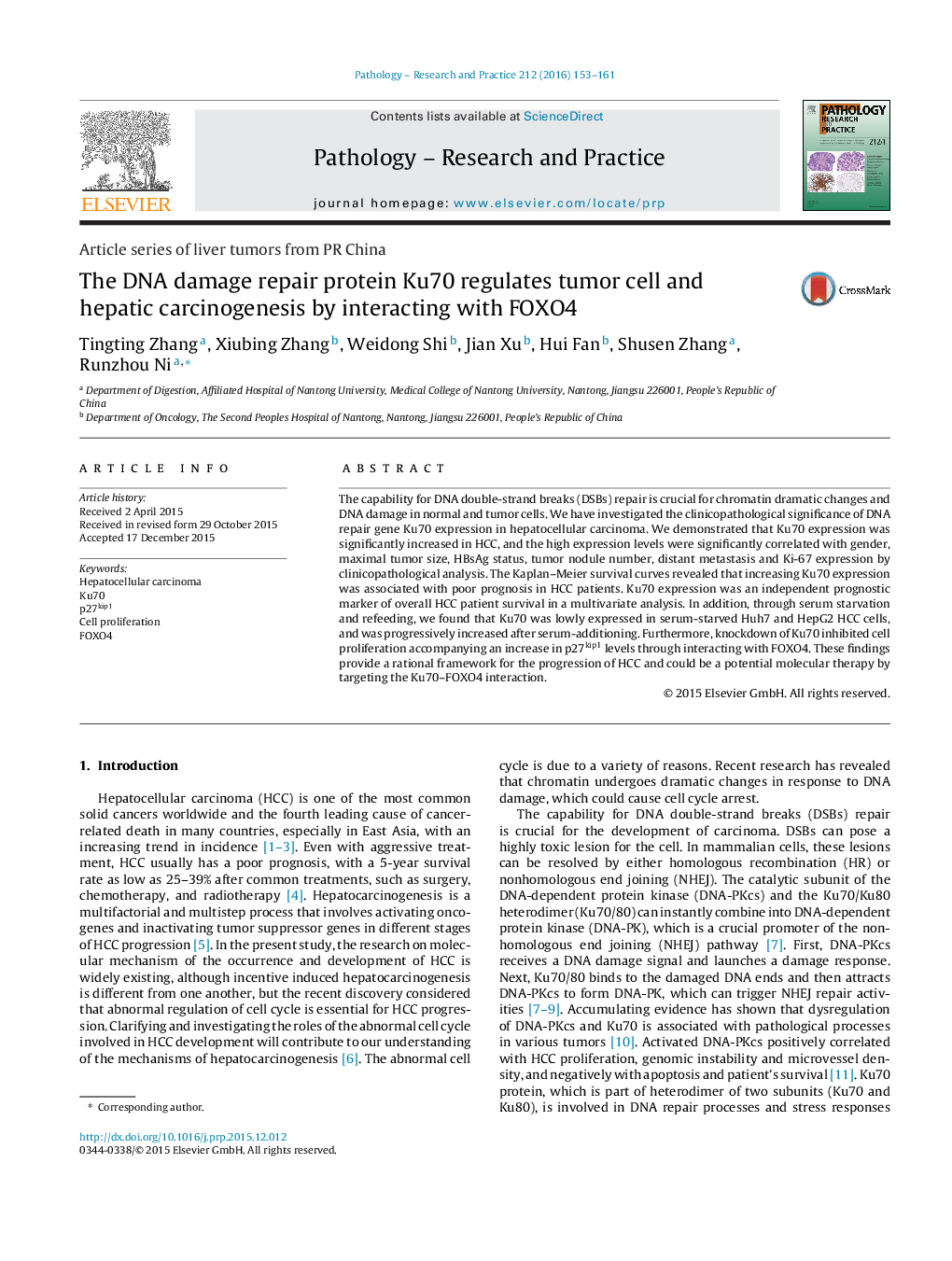| Article ID | Journal | Published Year | Pages | File Type |
|---|---|---|---|---|
| 2155110 | Pathology - Research and Practice | 2016 | 9 Pages |
The capability for DNA double-strand breaks (DSBs) repair is crucial for chromatin dramatic changes and DNA damage in normal and tumor cells. We have investigated the clinicopathological significance of DNA repair gene Ku70 expression in hepatocellular carcinoma. We demonstrated that Ku70 expression was significantly increased in HCC, and the high expression levels were significantly correlated with gender, maximal tumor size, HBsAg status, tumor nodule number, distant metastasis and Ki-67 expression by clinicopathological analysis. The Kaplan–Meier survival curves revealed that increasing Ku70 expression was associated with poor prognosis in HCC patients. Ku70 expression was an independent prognostic marker of overall HCC patient survival in a multivariate analysis. In addition, through serum starvation and refeeding, we found that Ku70 was lowly expressed in serum-starved Huh7 and HepG2 HCC cells, and was progressively increased after serum-additioning. Furthermore, knockdown of Ku70 inhibited cell proliferation accompanying an increase in p27kip1 levels through interacting with FOXO4. These findings provide a rational framework for the progression of HCC and could be a potential molecular therapy by targeting the Ku70–FOXO4 interaction.
